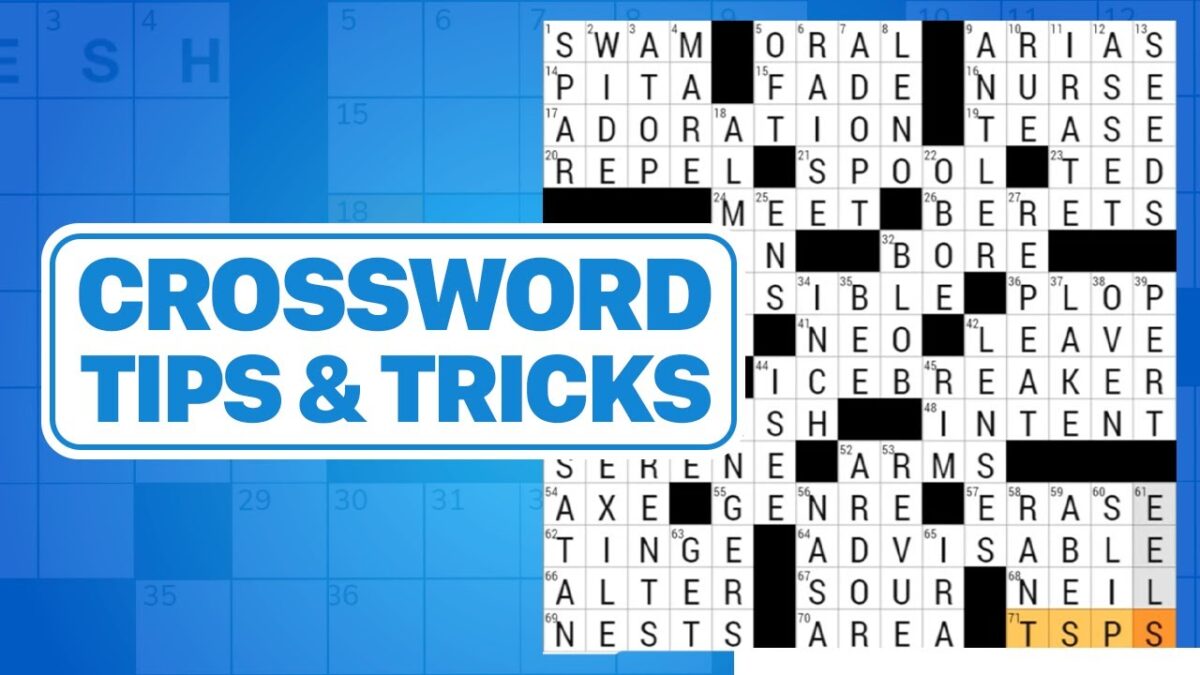Crosswords are more than just word puzzles; they are a cultural phenomenon that has stood the test of time. From Sunday newspapers to smartphone apps, crosswords challenge our minds, entertain us, and even help improve our mental health. But what exactly is a crossword, where did it come from, and why has it captivated millions for over a century? In this detailed guide, we’ll dive deep into the fascinating world of crosswords, exploring their history, benefits, types, solving strategies, and much more. Whether you’re a beginner or a seasoned pro, this article will leave you with a newfound appreciation for the humble crossword.
What Is a Crossword?
A crossword is a word puzzle consisting of a grid, usually square or rectangular, where players fill in answers to clues. The answers fit horizontally (across) and vertically (down), intersecting at specific points. The clues may be definitions, wordplay, or even cryptic hints, challenging solvers to think creatively and analytically.
Crosswords are a game of logic and language, Testing your vocabulary, general knowledge, and problem-solving skills. They can be as simple as a quick distraction or as complex as a brain-teasing marathon. At their core, crosswords are about making connections—literally and figuratively!
The History of Crosswords
The Birth of the Modern Crossword
The crossword puzzle we know today was first published in the New York World newspaper on December 21, 1913. It was initially called a “Word-Cross Puzzle, ” created by journalist Arthur Wynne.” Interestingly, a printing error changed the name to “Crossword,” which eventually became “Crossword.”
Arthur Wynne’s puzzle was diamond-shaped and didn’t include black squares like modern grids, but it introduced the basic concept of interlocking words. The crossword’s popularity soared during the early 20th century, especially in English-speaking countries.
Crosswords Around the World
While crosswords were born in the United States, they quickly spread globally, with unique variations popping up in different cultures. For example:
- Cryptic Crosswords (famous in the UK) feature riddles and wordplay in their clues.
- Arrow Words (common in Europe) replace traditional clues with arrows inside the grid.
- Japanese Crosswords include logic-based puzzles like Sudoku and Kakuro.
Today, crosswords are a universal pastime, transcending language barriers and appealing to people of all ages.
Benefits of Solving Crosswords
Crosswords aren’t just fun and perfect for your brain and overall well-being. Here are some of the fantastic benefits of solving crosswords:
- Mental Stimulation
Crosswords engage multiple brain areas, improving memory, focus, and cognitive flexibility. They keep your mind sharp and may even delay the onset of dementia and Alzheimer’s disease.
- Vocabulary Expansion
By introducing new words and phrases, crosswords help expand your vocabulary. They encourage you to explore synonyms, antonyms, and unusual expressions.
- Stress Relief
Solving a crossword can be a meditative experience. It allows you to focus on a single task, reducing stress and anxiety.
- Problem-Solving Skills
Crosswords teach you to break down problems, think critically, and explore creative solutions—all valuable life skills.
- Social Connections
Crosswords often unite people through competitive solving, sharing answers, or collaborating on challenging puzzles.
Types of Crosswords
Not all crosswords are created equal. Let’s take a look at some of the most popular types of crossword puzzles:
- Standard Crosswords
These are the classic crosswords you see in newspapers. They have a symmetrical grid and straightforward clues, ranging from easy to challenging.
- Cryptic Crosswords
Cryptic crosswords are a treasure trove of puns, anagrams, and double meanings for those who love wordplay. Clues are often tricky, requiring lateral thinking.
- Themed Crosswords
In themed crosswords, all or most clues relate to a specific topic, such as movies, sports, or history. They’re great for enthusiasts of niche subjects!
- Mini Crosswords
Perfect for beginners or anyone short on time, mini crosswords are smaller versions of the traditional puzzle, usually with a 5×5 or 7×7 grid.
- Diagramless Crosswords
In these puzzles, the solver has to figure out where the black squares go, adding an extra layer of difficulty.
- Online and Interactive Crosswords
With the rise of technology, many crosswords are now available online or in apps, featuring hints, timers, and multiplayer modes.
How to Solve a Crossword Puzzle
Solving a crossword can initially feel intimidating, but you’ll get the hang of it with practice and a few tips. Here’s a step-by-step guide to help you crack any puzzle:
- Start with the Easy Clues
Begin with the clues you’re confident about. Filling in more accessible answers gives you letters that can help with more challenging clues.
- Work Across and Down
Alternate between across and down clues. The intersecting letters can provide hints for the words you’re stuck on.
- Pay Attention to Clue Types
- Straightforward Clues: These are direct definitions or descriptions.
- Wordplay Clues: Look for anagrams, abbreviations, or puns.
- Fill-in-the-Blank: These are often the most straightforward clues to solve.
- Use Context Clues
If you don’t know an answer, think about the puzzle’s theme or the clue’s tone. Sometimes, the answer is hiding in plain sight!
- Keep a Dictionary Handy
While over-reliance on a dictionary can spoil the fun, it’s a helpful tool when you’re genuinely stumped.
- Practice Regularly
The more crosswords you solve, the better you’ll get. Start with easier puzzles and gradually move on to more challenging ones.
Fun Facts About Crosswords
Here are some surprising and delightful tidbits about crosswords:
- The most giant crossword puzzle ever created had over 91,000 squares and was published in 2018.
- The New York Times crossword is one of the most famous puzzles in the world, known for its escalating difficulty throughout the week.
- British intelligence recruited crossword enthusiasts in World War II to crack enemy codes.
- “crossword” was added to the Oxford English Dictionary in 1933.
Crossword Tools and Resources
To enhance your crossword-solving experience, consider these tools and resources:
Tool/ResourcePurposeExample
Crossword Dictionary answers tricky clues in Bradford’s Crossword Solver’s Dictionary.
Crossword Apps Digital puzzles with features like hints NYT Crossword App, Crosswords With Friends
Online Puzzle Websites Access to daily puzzles and archives Puzzle Society, L.A. Times Crossword
Community Forums Discuss and share solving tips on Reddit’s r/crossword
These resources can help beginners get started, and seasoned solvers level up their skills.
Crossword Challenges and Competitions
For those who want to take their crossword passion to the next level, competitions are a fantastic opportunity. Events like the American Crossword Puzzle Tournament (ACPT) bring solvers of all skill levels together to compete for prizes and bragging rights. Whether you’re solving against the clock or collaborating with friends, competitions are a thrilling way to celebrate the art of the crossword.
Why Crosswords Will Never Go Out of Style
Crosswords have endured for over a century because they appeal to our love of words, challenges, and discovery. They’re accessible yet endlessly varied, simple yet profound. In an age of constant distractions, crosswords offer a chance to slow down, focus, and connect—with language, ideas, and ourselves.
So, whether you’re curling up with a puzzle on a lazy Sunday morning or racing to finish the day’s crossword during your lunch break, remember: every grid is a small adventure waiting to be solved.
Conclusion
Crosswords are more than a pastime—they’re a testament to human creativity, ingenuity, and resilience. With their rich history, countless variations, and undeniable benefits, they’ve earned their place as one of the most beloved puzzles in the world.
The next time you pick up a crossword, take a moment to appreciate the thought and craftsmanship that went into it. And who knows? Maybe one day, you’ll create your grid or compete alongside the crossword elite.



